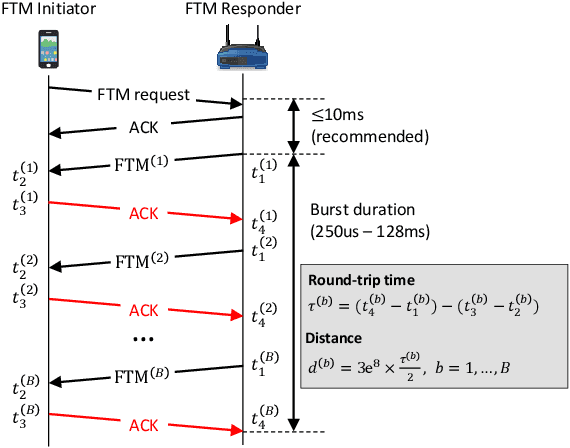Enhanced Wi-Fi RTT Ranging: A Sensor-Aided Learning Approach
Paper and Code
Dec 28, 2021



The fine timing measurement (FTM) protocol is designed to determine precise ranging between Wi-Fi devices using round-trip time (RTT) measurements. However, the multipath propagation of radio waves generates inaccurate timing information, degrading the ranging performance. In this study, we use a neural network (NN) to adaptively learn the unique measurement patterns observed at different indoor environments and produce enhanced ranging outputs from raw FTM measurements. Moreover, the NN is trained based on an unsupervised learning framework, using the naturally accumulated sensor data acquired from users accessing location services. Therefore, the effort involved in collecting training data is significantly minimized. The experimental results verified that the collection of unlabeled data for a short duration is sufficient to learn the pattern in raw FTM measurements and produce improved ranging results. The proposed method reduced the ranging errors in raw distance measurements and well-calibrated ranging results requiring the collection of ground truth data by 47-50% and 17-29%, respectively. Consequently, positioning error reduced by 17-30% compared to the result with well-calibrated ranging.
 Add to Chrome
Add to Chrome Add to Firefox
Add to Firefox Add to Edge
Add to Edge